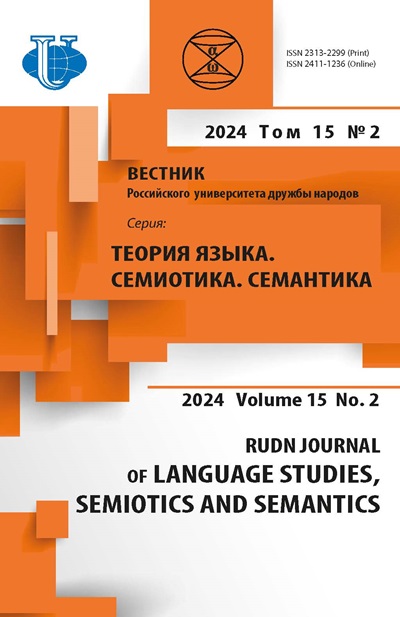Search
Issue
Title
Authors
|
Vladimirova T.E. |
|
Naydenova N.S. |
|
Kazachenko O.V. |
|
Artyukhova N.S., Saykina O.S., Solovyeva A.A. |
|
Naumova E.A., Ananchenkova P.I. |
|
Ganapolskaya E.V. |
|
Tejerina G. |
|
Nelyubova N.Y. |
|
Kirov E.F. |
|
Ikonnikova O.N. |
|
Pudikova G.N. |
|
Galieva N.F. |
|
Vavichkina T.A. |
|
Bobrova E.D. |
|
Shevchenko O.A. |
|
Gribanov I.S. |
|
Egorov V.G. |
|
Kosogorova M.A. |
|
Gornostaeva A.A. |
|
Valentinova O.I., Rybakov M.A. |
|
Dildabekova A.K. |
|
Nauryzova A.K. |
|
Vavichkina T.A., Vlasova Y.E. |
|
Nikiforova S.A., Chesnokova O.S. |
|
Gamov A.N. |
|
Brygina A.V. |
|
Mamontov A.S., Moroslin P.V., Astremskaya H.V. |
|
Kakzanova E.M. |
|
Korolkova A.V. |
|
Syomina P.S. |
|
Lomakina O.V., Mokienko V.M. |
|
Markova E.A., Todorova I.D. |
|
Emirova A.M. |
|
Shaymerdinova N.G., Zhiyembay B.S. |
|
Mateykovitch E.V. |
|
Martynenko I.A. |
|
Khromov S.S. |
|
Khukhuni G.T., Osipova A.A. |
|
Trubnikova V.Y. |
|
Komalova L.R., Goloshchapova T.I. |
|
Zarytovskaya V.N. |
|
Medvedev Y.Y., Ntsiwou Batiako L.D. |
|
Yunkova E.P. |
|
Borisova A.A., Ilina N.Y. |
|
Nagzibekova M.B., Mirzoyeva Z.D. |
|
Veretennikov A.A. |
|
Gribanov I.S. |
|
Lomakina O.V. |
|
Martynenko I.A. |
|
Matytsina I.V. |
|
Bello I.M. |
|
Mamontov A.S., Stolyarova A.G. |
|
Pimenova M.V., Lianlian W. |
|
Filyasova Y.A. |
|
Filyasova Y.A. |
|
Kutsaeva M.V. |
|
Zarytovskaya V.N. |
|
Khromov S.S. |
|
Khromenkov P.N. |
|
Tarasenkova Y.V. |
|
Bakhtikireeva U.M., Bragina M.A. |
|
Omelchenko V.V. |
|
Osokina E.A. |
|
Chernov D.N., Moroslin P.V., Mamontov A.S. |
|
Shaklein V.M., Scomarovscaia A.A. |
|
Sharapova E.V. |
|
Lunkova L.N., Bukina L.M. |
|
Osokina E.A. |
|
Persiyanova S.G., Rostova E.G. |
|
Feliksov S.V. |
|
Nedopekina E.M. |
|
Mikhaylenko A.Y. |
|
Tkach D.G. |
|
Bednárová-Gibová K. |
|
Chutpulatov M.C. |
|
Naydenova N.S. |
|
Ngamsaengpruyek Usane -. |
|
Novospasskaya N.V. |
|
Maksimenko O.I., Shuripa S.V. |
|
Shumbassova S.S. |
|
Geichenko S.A. |
101 - 181 of 181 Items
<< < 1 2
Search tips:
- Search terms are case-insensitive
- Common words are ignored
- By default only articles containing all terms in the query are returned (i.e., AND is implied)
- Combine multiple words with OR to find articles containing either term; e.g., education OR research
- Use parentheses to create more complex queries; e.g., archive ((journal OR conference) NOT theses)
- Search for an exact phrase by putting it in quotes; e.g., "open access publishing"
- Exclude a word by prefixing it with - or NOT; e.g. online -politics or online NOT politics
- Use * in a term as a wildcard to match any sequence of characters; e.g., soci* morality would match documents containing "sociological" or "societal"









